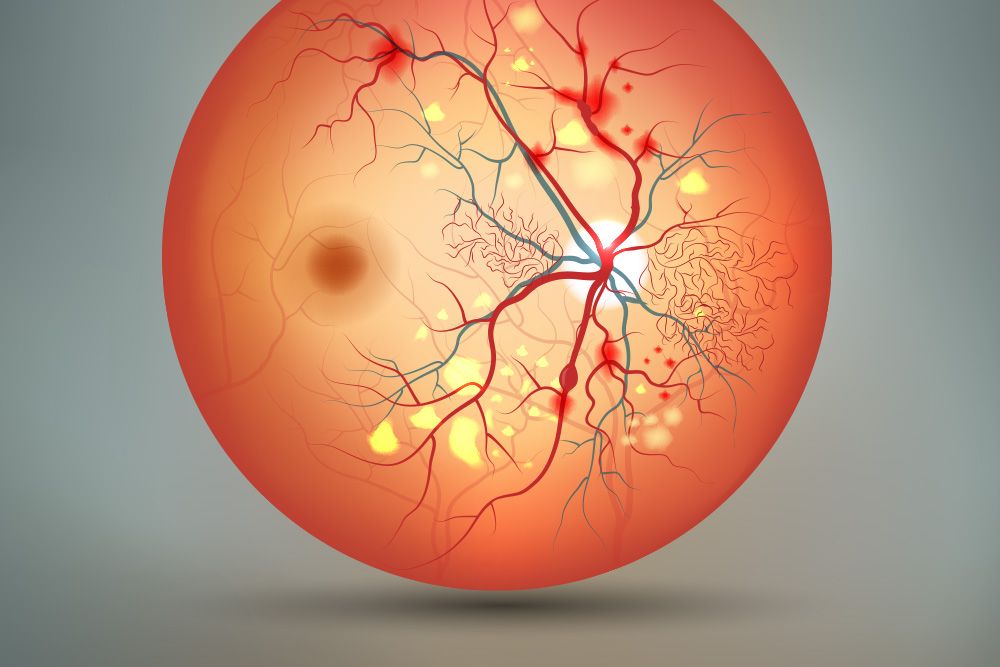What Is Vascular Eye Disease?
The health and function of your eyes rely on steady blood flow to and from the various parts of the light-detecting organ. When blood flow becomes restricted, vascular eye disease can occur. The presence of these diseases often coincides with vascular issues elsewhere in the body, such as high blood pressure or diabetes. The skilled doctors at Eye Physicians and Surgeons, P.A. in Dover, Newark, and Wilmington, DE, can diagnose and treat a wide range of vascular eye diseases. Early intervention can prevent irreversible damage to your eyes.

Do I Have a Vascular Eye Disease?
Patients who have an existing vascular disease, such as high blood pressure, diabetes, or high cholesterol, are at higher risk of developing vascular eye disease. Other risk factors include smoking and advanced age.
Symptoms of vascular eye disease may include:
- Sudden loss of vision
- Appearance of floaters
- Blurred vision
Some patients with vascular eye disease experience no symptoms. Whether symptoms are present or not, the eye condition can cause long-term or permanent damage to various parts of the eye.
During your eye exam at our eye care clinics in Dover, Newark, or Wilmington, DE, our doctors will explore your medical history as one means of diagnosing the presence of vascular eye disease. One of our skilled ophthalmologists will conduct an eye examination that may include optical coherence tomography (OCT) scanning, which can detect swelling inside the eye. In certain patients, a special dye (safe for the eye) may be injected into the veins near the back of the eye to search for possible obstructions to blood flow.
Types of Vascular Eye Disease
- Hypertensive Retinopathy: Over time, hypertension can cause the blood vessels in the eye to harden, narrow, or even leak, which can cause vision problems.
- Retinal Vein Occlusion: RVO causes the veins in the eye to become narrowed or obstructed. RVO is a leading cause of vascular-related blindness. If the condition affects the optic nerve, the patient is said to have Central Retinal Vein Occlusion (CRVO).
- Central Retinal Artery Occlusion: CRAO results from blockage of the central retinal artery. This condition requires care to prevent permanent eye damage. If you experience sudden loss of vision, our Wilmington office can offer care.
- Diabetic Retinopathy: This condition is a complication of diabetes that can lead to damage to the blood vessels of the retina.
What Are My Treatment Options?
Your treatment will depend on the cause of your symptoms. Vascular eye disease may require addressing the underlying cause of high blood pressure. Our ophthalmologist may recommend lifestyle changes or eliminating certain habits. Long-term efforts should include coordinating those efforts with your primary care physician. Medications to control blood pressure or lower cholesterol may be prescribed. Laser treatment, injections, and surgery can also be used to address blockages.
Schedule Your Vascular Eye Disease Consultation
Vascular eye disease can lead to irreversible damage to your eye and potentially permanent blindness. If you have risk factors for vascular eye disease or have experienced one or more of the symptoms listed above, contact our office online or call (302) 652-3353. Our office accepts credit cards, CareCredit®, and most major medical and routine vision plans.

